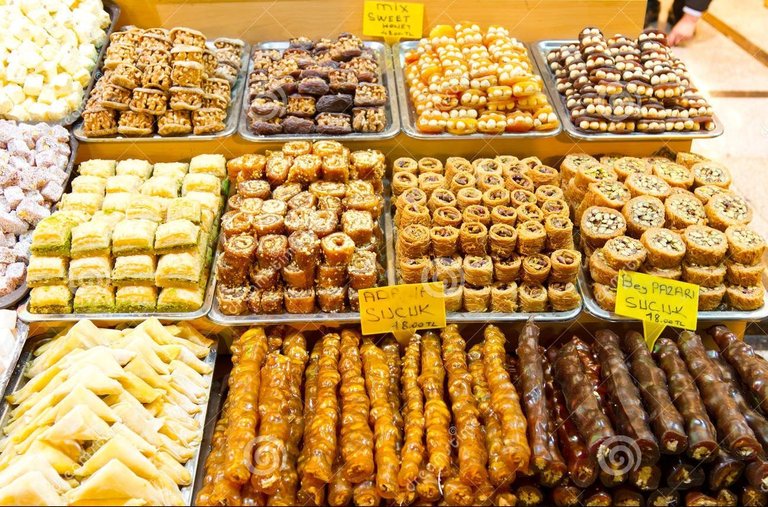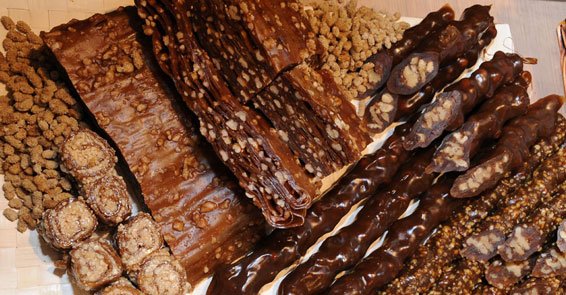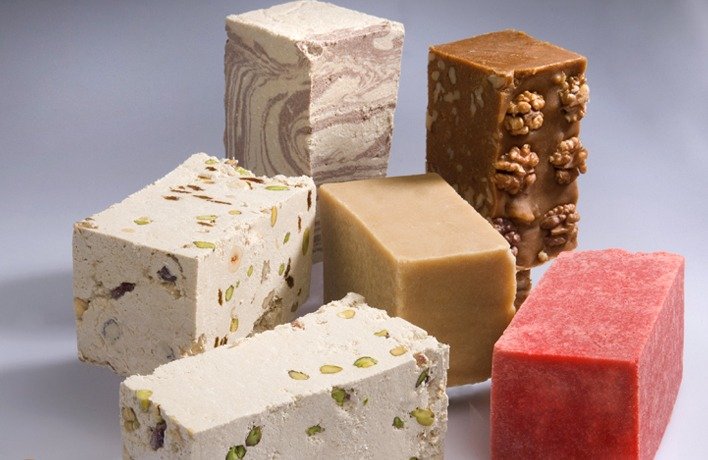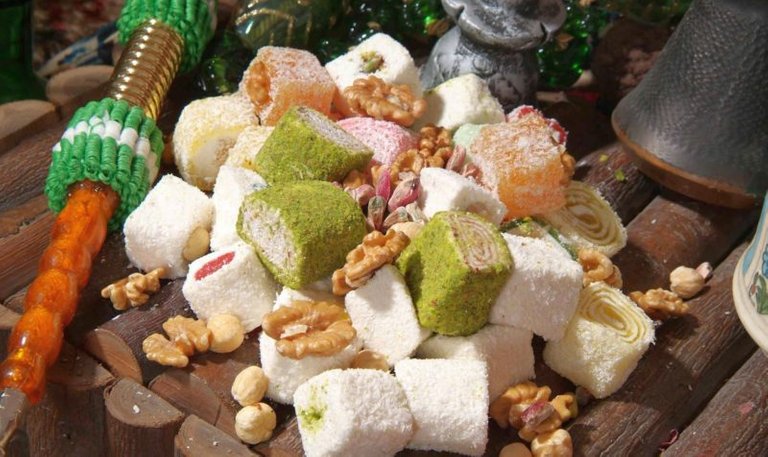
Turkey has a number of mouthwatering and delicious desserts.In Turkey, dessert is often a social ritual, a course meant to be shared. At any time of day or night, friends can be found congregating to sip Turkish coffee or tea from dainty glasses, and should you care to accompany that beverage with a roll, pastry, or snack, there's much to choose from. Baklava is just the tip of the iceberg—on a recent trip to Istanbul, I fell in love with the country's vast range of desserts, while developing a far deeper understanding of the Turkish sweet tooth. Here's a look at some of the most popular desserts you'll find.
1.Baklava
Baklava, is the most famous Turkish dessert. Not much to say, but you should note that baklava is not just a single type of dessert. It has various types and our suggestion to you is to taste all of the following types and pick your favorite.
Types of Baklava
When you ask a Turk what to eat as a Turkish dessert, baklava is the most common answer. Turks love sweets and baklava is a fine example of this. The description of baklava is simple: chopped nuts are spread in between the phyllo (yufka) layers, dressed with butter, baked and sweetened with syrup or honey. However, this is not a simple dessert to make.
2.Küme- Cezili Sucuk and Pestil
This is a unique and delicious dessert that is fun to eat and fun to make! Dried fruits and walnuts are laced on a string and dipped in thick, unsweetened grape must (the squished grape juice that still includes skins and pulp). These strings are then left to dry in the sun. They often look like candles or a sausage due to the grape must’s opaque finish.

3.Helva
Halva is a generic term for a few different types of dense, rich desserts; “halva” literally means “sweet”. There is a flour-based version that is more gelatinous, whereas the nut, butter, and sugar-based version crumbles more easily. Regardless of what kind of halva you find, the sweetness and nutty texture of this dessert will hit your palate just right after a Turkish meal especially after a fish plate.

Turkish Halva
4.Lokum the “Turkish Delight”
The original date for the invention of lokum is not clear. However, it is certain that Ali Muhittin Hacı Bekir’s lokums introduced the taste to the world. He opened his confectionery shop in Istanbul in 1776. An English explorer got lokum from his shop and took them to England. Turkish delight’s fame spread since then.

Lokum with its various types
Originally, there were three colors meaning three flavors: red – rosewater, yellow – lemon peel and green – bitter orange.
With today’s rich variety of ingredients and nuts there currently are several flavors such as rose, pistachio, hazelnut, walnut, almond, coconut and almond, cream, cream with cinnamon, mint, mastic, cinnamon, ginger, clove and coffee, and fruit flavors like sour cherry, strawberry, orange, apricot, and lemon.
Lokum is usually served with Turkish Coffee, but it is mostly bought as a gift to represent Turkish culture.
5.Kabak tatlısı
Are you tired of the same old pumpkin recipes? Here is a delicious recipe from Turkey that will take you way beyond pumpkin pie.

Pumpkin Dessert
Turkish candied pumpkin dessert, better known as ‘kabak tatlısı’ (kah-BAHK’ TAHT’-luh-suh), is not only simple to prepare, it’s also fancy enough for company. It’s a great way to get the full flavor of pumpkin your whole family will love, without the extra calories and carbs of pie crust.
It’s perfect when you have extra pumpkin around. Be brave and try this recipe during the holidays in place of pumpkin pie and you’ll never go back.
6.Kesme dondurma

Have you ever eaten ice cream with a knife and fork? Kesmek means "to cut" in Turkish, so kesme dondurma, made from salep and goat milk, refers to an ice cream made for slicing. There are several brands of the ice cream, which originated in the city of Maraş, but a cafe called MADO is one of the more well-known. They not only grow their own salep and use exclusively natural flavors for their ice creams, but also raise goats fed only with thyme, milk vetch, and orchid flowers, to give their ice cream its sweet, subtly botanical base.
While kesme dondurma uses the same type of orchid-root thickening agent used in salep dondurma, it's a specific beating method that makes it dense enough to form that solid brick shape when frozen; when eaten, it melts slowly in the mouth. MADO carries several flavors of kesme dondurma, including Maraş cut (plain), peanut, orange, caramel-almond, chocolate, pistachio, and mixed fruit.
Congratulations @ahdtv! You have completed some achievement on Steemit and have been rewarded with new badge(s) :
Click on any badge to view your own Board of Honor on SteemitBoard.
For more information about SteemitBoard, click here
If you no longer want to receive notifications, reply to this comment with the word
STOP